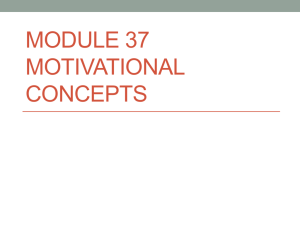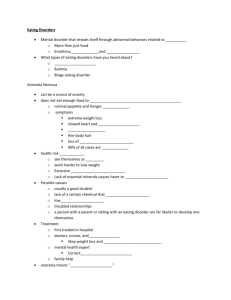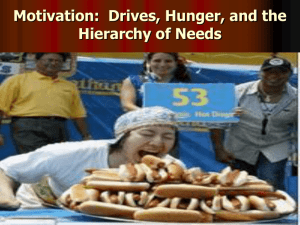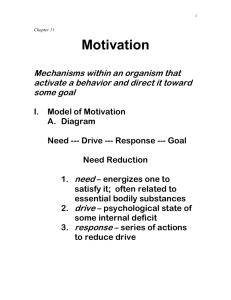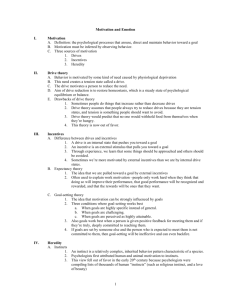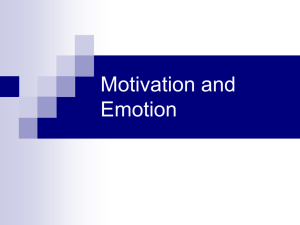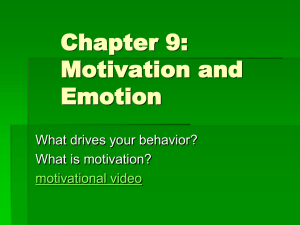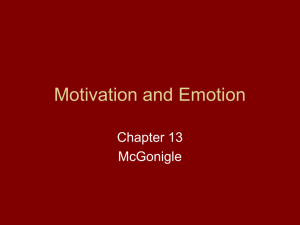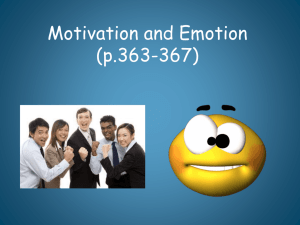Motivation: Theories and Hunger Lecture Notes
advertisement
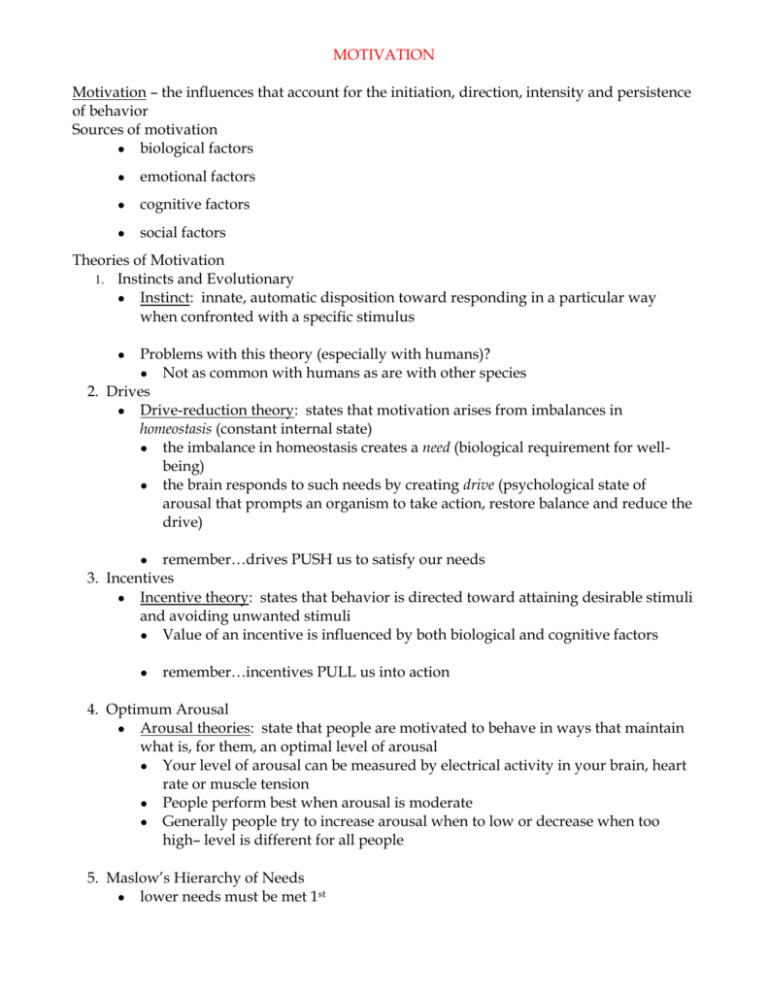
MOTIVATION Motivation – the influences that account for the initiation, direction, intensity and persistence of behavior Sources of motivation ● biological factors ● emotional factors ● cognitive factors ● social factors Theories of Motivation 1. Instincts and Evolutionary ● Instinct: innate, automatic disposition toward responding in a particular way when confronted with a specific stimulus Problems with this theory (especially with humans)? ● Not as common with humans as are with other species 2. Drives ● Drive-reduction theory: states that motivation arises from imbalances in homeostasis (constant internal state) ● the imbalance in homeostasis creates a need (biological requirement for wellbeing) ● the brain responds to such needs by creating drive (psychological state of arousal that prompts an organism to take action, restore balance and reduce the drive) ● remember…drives PUSH us to satisfy our needs 3. Incentives ● Incentive theory: states that behavior is directed toward attaining desirable stimuli and avoiding unwanted stimuli ● Value of an incentive is influenced by both biological and cognitive factors ● ● remember…incentives PULL us into action 4. Optimum Arousal ● Arousal theories: state that people are motivated to behave in ways that maintain what is, for them, an optimal level of arousal ● Your level of arousal can be measured by electrical activity in your brain, heart rate or muscle tension ● People perform best when arousal is moderate ● Generally people try to increase arousal when to low or decrease when too high– level is different for all people 5. Maslow’s Hierarchy of Needs ● lower needs must be met 1st Self-actualization Esteem Needs Social Needs Love & Belonging Safety Needs Physiological Needs theory a bit arbitrary – the order is not universally fixed, as there will always be exceptions PRIMARY MOTIVES – HUNGER What triggers hunger? ● Stomach contractions ● Body chemistry – blood sugar (glucose)…when blood glucose levels drop, you feel hungry ● Hypothalamus ● Lateral hypothalamus: brings on hunger ● ● ● Ventromedial hypothalamus: depresses hunger ● ● How does it all work? ● Alters the body’s weight thermostat, which predisposes us to keep our bodies at a steady weight (set point) ● To maintain set point, body not only adjusts food intake and energy output, it also adjusts its basal metabolic rate, the body’s resting rate of energy expenditure ● Not all researchers believe in idea of a set point Psychology of hunger ● External incentives – eat because triggered by the presence of food, especially tasty food ● Taste preference – biological and cultural factors also influence what we are hungry for Many other items as well can influence “hunger” – eating by the “clock,” social eating, stress/depression eating patterns, other eating cues like holidays or when watching TV or movie ● Eating disorders ● Anorexia nervosa: self-starvation and dramatic weight loss ● ● Bulimia nervosa: involves eating massive amounts of food and then eliminating the food by self-induced vomiting or use of laxatives – “binge-purge cycle” ● Binge eating disorder: recurrent binge eating without any type of “purging” as in bulimia ● Cultures who put more emphasis on looks/appearance have higher incidences of eating disorders
